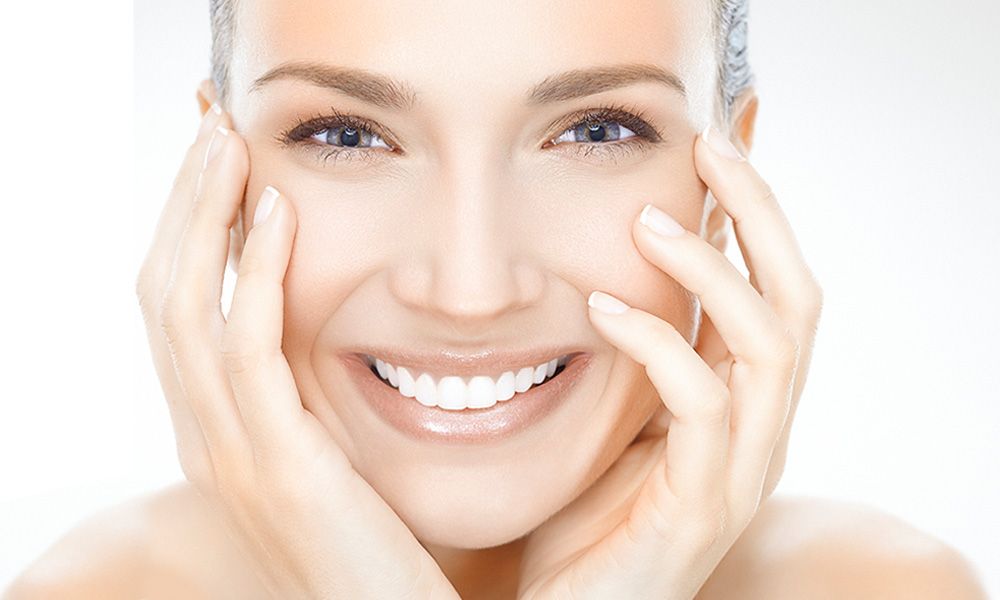Featured
Why YOU Need 100% Gluten FREE Luxury Skincare

By Charlene Bollinger
January 11, 2024
Here at CHARLÍS, all of our products are lab-tested to be 100% gluten free. That is why we have a definitive “no gluten” label on all our formulas. Why is this important? There are some specific reasons, and not just for those who have a diagnosed gluten-related condition such as Celiac Disease.
Read on to learn why everyone can benefit from 100% gluten free luxury skincare with CHARLÍS!
Celiac and Gluten Sensitivity
Celiac disease is the most well-known gluten-related disease today. It is a “serious autoimmune disease that occurs in genetically predisposed people where the ingestion of gluten leads to damage in the small intestine,” as defined by the Celiac Disease Foundation. (1) Celiac Disease affects one in 100 people worldwide, with 30% of adults and up to 80% of all children not diagnosed and potentially not even aware that they may have it. (2) For individuals with Celiac, it is of absolute importance that they do not come into contact with gluten in any form, including in skincare products.
But those with Celiac are not the only ones who can benefit from 100% gluten free skincare products like those at CHARLÍS. On the other end of the spectrum, there are millions who suffer from moderate to mild gluten sensitivity yet do not have Celiac.
Could this be you? There is a good chance that you may be suffering from gluten sensitivity (i.e., gluten intolerance) if you are experiencing one or more of the following symptoms:
- Diarrhea
- Constipation
- Bloating/gas
- Smelly feces
- Sleep issues
- Fatigue
- Chronic pain (especially in the joints)
- Depression/anxiety
- Weight changes
- Anemia-like symptoms
- Autoimmune conditions
- Skin issues such as chronic acne or skin sensitivities
With non-Celiac gluten intolerance, there are quite a few lifestyle-related factors that can directly contribute to the severity of the condition. Poor gut health, gut microbiome imbalance, gut permeability, chronic stress, poor eating habits, sleep issues, chronic dehydration, sedentariness, and exposure to toxins (including toxic substances like bromide used to make gluten-based products)—these are just a few factors that can lead to gluten sensitivity.
According to Dr. David Perlmutter, author of the best-selling book Grain Brain, as many as 30% of Americans have severe gluten reactions. Other research has found that, in fact, all humans living in the modern world may have “some degree of gluten intolerance.” (3) In addition, a study done at Columbia University Medical Center found that those with high levels of certain pro-inflammatory substances in their system experienced non-Celiac gluten sensitivity which improved when gluten was eliminated from their diet. The Columbia researchers also found that these substances can lead to epithelial cell damage, which occurs in the intestinal lining.
What all this means is that it really is to the benefit of all of us to take a good look at how gluten may be affecting our health and, if necessary, take measures to reduce it or even eliminate it completely from our lives. (4)
Our Body “Eats” Through the Skin
But, you may ask, his only pertains to foods, right? After all, how can using a skin product cause a gluten reaction?
The answer to this question may surprise you. The fact is, there are many different ways we “consume” both nutrients and toxins. Besides orally through food and drink, the biggest way comes through the skin.
Did you know that the skin acts like a sponge and literally “consumes” every lotion, cream, soap, and oil that you lather use on its surface? This is a scary fact, especially when you consider that out of the over 10,000 toxic substances used in commercial cosmetics, skincare, and other personal care products, only about 13% have actually been tested for safety. (5)
Gluten in Commercial Skincare Product
It is fairly easy most of the time (yet not all the time) to recognize gluten-based ingredients in processed food. This is because manufacturers are required to display them and most of them do in the form of “Wheat flour/bread flour/bleached flour, Bulgur, Malt, Couscous, Farina, Pasta, Seitan, Wheat or barley grass, …Wheat germ oil or extract” or monosodium glutamate. Other manufacturers may display direct warnings regarding ingredients as well as the manufacturing facilities they use that may have regular gluten exposure. (6)
Determining if gluten is within commercial or even organic skincare products is quite a bit trickier, however. Emulsifiers, stabilizers, texture and consistency enhancers, and other substances used especially in the manufacturing stage may potentially contain gluten which then goes into the bottle that is sold to you. Here is a partial list of cosmetic and skincare ingredients that are gluten-based:
- Triticum lipids and vulgare
- AMP-isostearoyl hydrolyzed wheat protein
- Wheat bran and wheat germ extract
- Wheat germ glyceride
- Hydrolyzed wheat protein (HWP)
- Hydrolyzed wheat gluten
- Barley extract
- Hordeum vulgare extract
- Malt extract
- Vitamin E (often derived from wheat germ)
If you have concerns about gluten in a skincare product, be sure to check the product's ingredient list or, better yet, contact the manufacturer directly just to be sure.
Three Reasons CHARLÍS is Gluten Free!
Many skincare products have at least some amount of gluten in them. That is why, here at CHARLÍS, we have made the commitment to offer only 100% gluten free products for your good health, safety, and vibrant looking skin. Here are 3 specific reasons why we do it:
#1 Avoiding Skin Based Reactions.
Those with Celiac disease and gluten sensitivity can have mild to severe skin-based reactions to skincare products that contain gluten. (7) Some of these reactions include redness, itching, rashes, hives, dryness, acne breakouts, Dermatitis Herpetiformis (a skin condition connected to Celiac disease), and more extreme skin sensitivity. Even if you do not know if you have gluten intolerance, why take the risk? Simply go gluten free and keep your face and overall skin blemish-free and healthy!
#2 Preventing Accidental Ingestion.
When you use skin care products containing gluten, there's a risk of accidental ingestion through the mouth as well as when you engage in activities like eating, drinking, or touching your face. This can be very problematic for those with gluten sensitivity. And even small amounts of gluten ingestion can trigger symptoms in individuals with celiac disease.
#3 Preventing Cross-Contamination.
Cross-contamination occurs when gluten-containing skin care products are used by someone in the same household. Gluten particles can linger on surfaces and be transferred to the hands or other objects, increasing the risk of ingestion through the skin or mouth for those who are sensitive. If you go gluten free, make it a point to eventually go all the way. Make sure that all of the products in your medicine cabinet are gluten free and encourage others in your household to do the same.
100% Gluten Free Means Peace of Mind
There is one more major reason why we make the gluten free commitment with all of our products. For people with celiac or gluten sensitivity, going gluten-free skin just provides profound peace of mind.
When you use any CHARLÍS products in our Luxury Face Collection and Body collection, you don't have to worry about whether your skin care routine may be contributing to gut, skin or other gluten-related symptoms. And because all CHARLÍS products are lab tested for gluten and chemical toxins to be ToxicFree ©, there will be no doubt that your daily CHARLÍS products are only contributing to the health, vitality, and beauty of your skin!
References:
(1) What is Celiac Disease?
(2) Diagnosis of celiac disease is being missed in over 80% of children particularly in those from socioeconomically deprived backgrounds
(3) Gluten Sensitivity – Challenged by a New Study?
(4) No Effects of Gluten in Patients with Self-Reported Non-Celiac Gluten Sensitivity After Dietary Reduction of Fermentable, Poorly Absorbed, Short-Chain Carbohydrates
(5) Cosmetics Safety Q&A: Prohibited Ingredients
(6) How to Identify Gluten on Food Labels
(7) Dermatitis Herpetiformis
subscription
join our exclusive beauty community
Elevate your beauty journey with personalized recommendations and stay connected with a community that shares your passion for self-care. Subscribe now and embark on a beauty adventure with us!
